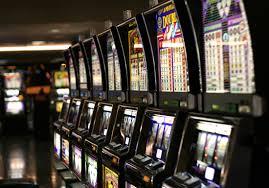-
NEUIGKEITEN
- EXPLORE
-
Seiten
-
Gruppen
-
Veranstaltungen
-
Blogs
Essential Poker Tips Every Beginner Should Know in the World of Online Games

Master poker in the world of online games with these beginner-friendly tips—from hand selection to bankroll strategies, elevate your play and join the league.
Poker Tips Every Beginner Should Know
Whether you're stepping into the virtual poker room for the first time or building a foundation to level up your game, mastering poker takes more than luck—it requires strategy, patience, and smart decision-making. In the rich and competitive environment of liverpool888 online games, having solid beginner skills is essential.
This guide offers essential poker tips tailored for new players. With clear explanations and practical advice, you'll gain the knowledge and confidence to compete with purpose and enhance your enjoyment of the game.
1. Know the Hand Rankings by Heart
Poker begins with understanding what beats what.
-
Royal Flush (A-K-Q-J-10, same suit) – Highest possible hand
-
Straight Flush – Five consecutive cards, same suit
-
Four of a Kind, Full House, Flush, Straight, Three of a Kind, Two Pair, One Pair, High Card
Familiarity with these is vital. When browsing through your playable hands, knowing whether you have a strong or weak starting combination makes all the difference.
2. Play Tight—Especially Early On
One of the most important lessons for beginners:
-
Play tight—focus on strong starting hands like high pairs (Aces, Kings), suited high connectors (Ace–King suited), or medium pairs in late position.
-
Position is everything; being "on the button" or close to it provides strategic advantages—you can make more informed decisions after others act.
Avoid the temptation to play every hand—conserving chips for stronger moments gives you an edge in the long run.
3. Observe and Read the Table
In online poker, physical tells are gone—but behavioral tells still matter.
-
Watch bet sizes and timings: Quick strong bets may indicate confidence, while hesitation might show weakness.
-
Opponent patterns: Do they bet consistently or only after the flop? Adjust your strategy accordingly.
-
Tilt recognition: Online, tilt can show as erratic betting or rapid play. Be ready to exploit it when others falter.
Mindful observation helps you adapt quickly and strategically.
4. Understand Pot Odds and Value Betting
Good poker players think in odds—not luck.
-
Pot odds: The ratio of the current size of the pot to the cost of a contemplated call. For example, if the pot is $100 and the bet is $20, your pot odds are 5:1.
-
Value betting: Betting when you believe you have the best hand, particularly when you expect opponents will pay to see more cards.
These concepts help you make mathematically sound decisions rather than instinctive ones.
5. Practice Bankroll Management
Poker is a long game with swings—manage your money carefully.
-
Set a budget: Only play with money you can afford to lose.
-
Stick to limits: In tournament or cash game variation, ensure your buy-ins align with recommended bankroll percentages.
-
Stay disciplined: Resist buying in for more mid-session, especially when on tilt.
Smart bankroll habits ensure your online poker journey stays sustainable and fun.
6. Fold When in Doubt
One of the hardest lessons for beginners is accepting losses—and that, on average, folding is often the correct strategy.
-
Folding frequently during tough sessions is smarter than calling with weak hands.
-
Recognize when your chances are slim and protect your bankroll for better opportunities.
Patience is a virtue in poker. Letting go of marginal hands helps preserve chips for strong ones.
7. Study and Learn Constantly
The top players are always learning.
-
Watch hand replays or tutorials to refine your decision-making.
-
Join forums or discussion groups to compare thoughts and strategies.
-
Practice in free or micro-stakes games to gain real experience without major risk.
Poker is a skill game with room for improvement at every level. Embrace the learning process to progress steadily.
8. Adapt Your Play Style
Beginners often fall into predictable patterns. To stay competitive:
-
Shift between tight and loose styles depending on game flow and opponents.
-
Vary your aggression—a surprise bet or raise can throw players off.
-
Adjust to your opponent’s tendencies—match them with counterstrategies.
Adaptive play keeps you unpredictable and effective in different game scenarios.
9. Use Position to Your Advantage
Position affects how information flows.
-
Late position players have the benefit of seeing others act first—this allows more informed decisions.
-
Early position is riskier—avoid overcommitting unless you have premium hands.
Being position-aware gives you control over pot dynamics and strategic flexibility.
10. Know When to Walk Away
Playing poker isn’t just about knowing when to bet—it’s about knowing when to stop.
-
Set time or session limits: Avoid fatigue and emotional play.
-
Recognize emotional states: If you’re frustrated or distracted, it’s time for a break.
-
Stick to your game plan: Successful players know when to preserve their bankroll and exit tables.
Self-awareness is as important as game awareness.
Final Thoughts: Find Your Flow in Online Games
Poker thrives at the intersection of skill, patience, and strategy. By mastering these beginner tips—hand selection, odds understanding, bankroll discipline, and adaptive play—you’ll improve not just your game but your enjoyment.
Take time, play smart, and let your strategy do the talking as you join the thriving community of online games enthusiasts.
Join the League of Smart Players
If you love the blend of strategy and thrill poker offers, now's your moment to support a smarter, stronger gaming community. Join the league of thoughtful players who share tips, celebrate wins, and elevate the world of online games together.
- Art
- Causes
- Crafts
- Dance
- Drinks
- Film
- Fitness
- Food
- Spiele
- Gardening
- Health
- Home
- Literature
- Music
- Networking
- Other
- Party
- Religion
- Shopping
- Sports
- Theater
- Wellness


